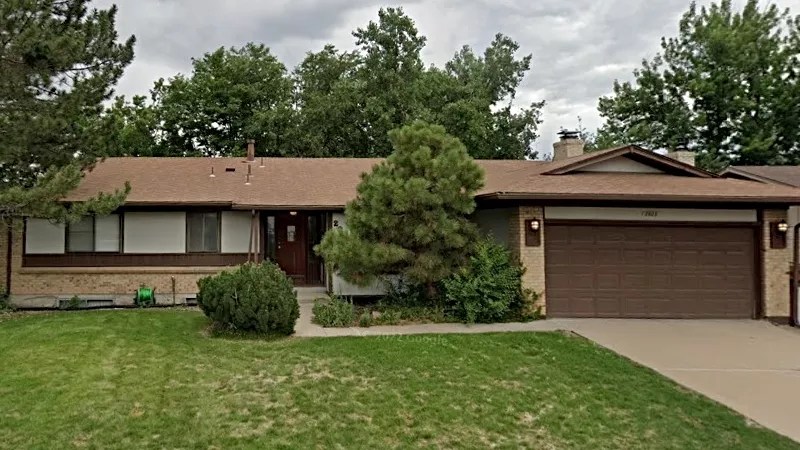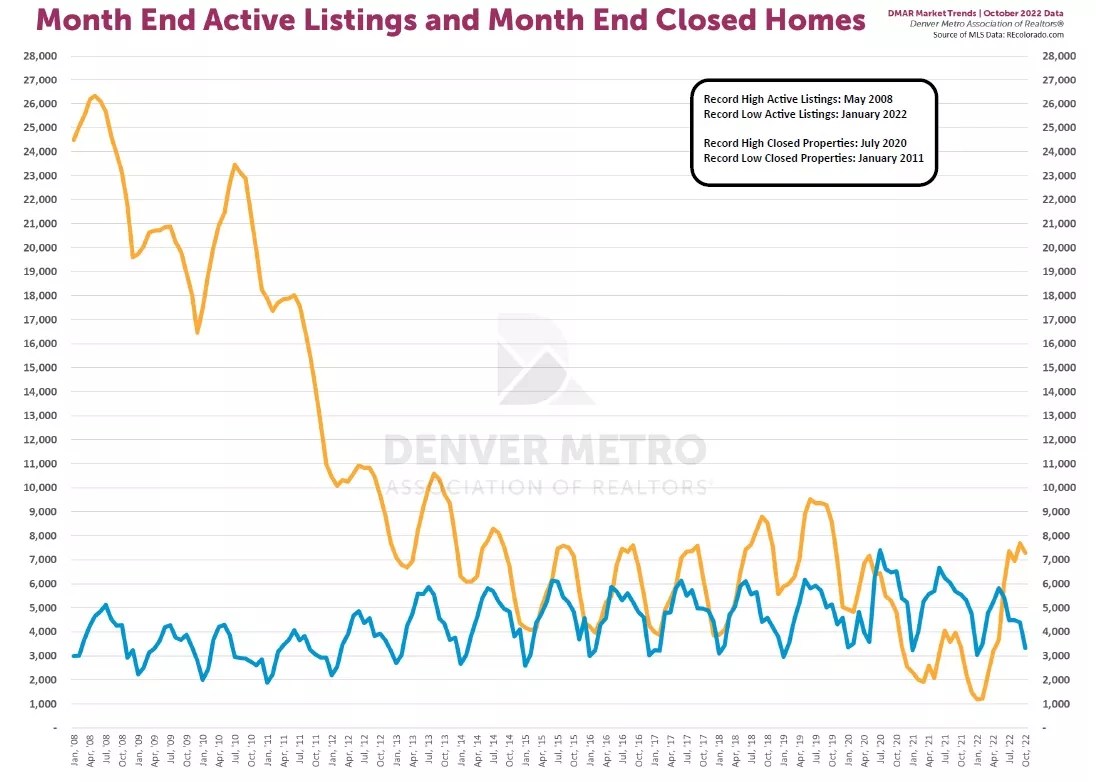
Google Maps

Audio By Carbonatix
The November market-trends report from the Denver Metro Association of Realtors reveals that the price for a detached home in the area dropped slightly in October, following an unexpected September rise. And other metrics suggest to the authors of the analysis that the local real estate scene is returning to seasonal normalcy after what they term a “pandemic-fueled buying frenzy.”
The average cost of a house in the metro area during October was calculated at $738,145, down 0.97 percent from September, when it was $745,341. The median price dipped by a little more; the $622,490 total for October was 1.19 percent lower than the $630,000 of the previous month.
Both figures are higher than they were a year earlier, by 7.89 percent and 6.5 percent, respectively. But the effect of higher interest rates is definitely being felt, as demonstrated by the four-bedroom, three-bathroom, 3,005-square-foot abode at 2923 South Reading Court seen at the top of the post. The house, in the attractive Hampden neighborhood, probably wouldn’t have lasted long had it been put on sale earlier this year, when demand was still piping hot. Instead, it debuted on the MLS (multiple-listings service) 63 days ago with a tag of $754,750, and it remains available even though the price was lowered by $15,750 on September 15.
The DMAR survey focuses on greater Denver, an eleven-county zone that includes the core metro counties as well as contiguous counties such as Gilpin, Clear Creek, Park and Elbert. Many of the October statistics follow historical trends that tend to kick in during autumn, but haven’t always done so over the past couple of years. Take active listings, for example: The 5,444 total recorded at month’s end declined by 6.11 percent from the previous month but was a stunning 131.56 percent higher than in October 2021. The 2,720 new listing total was 27.89 percent lower on a month-over-month basis, though, and the 2,332 closed listings tumbled 25.42 percent over the same span.
The following graphic, which covers the period from January 2008 to October 2022, illustrates the changes. The yellow line represents active listings at the end of the month, and it descended below the blue line, which depicts closed listings at month’s end, in July 2020 – and stayed beneath it for two years. Now, though, active listings are on top again.

The average cost of a detached home in Denver surpassed $700,000 for the first time in May 2021, en route to a record-setting $728,385 in June. That was followed by some back-and-forth slippage: $687,176 in July, $685,832 in August, $688,629 in September and $684,700 in October.
But in both November and December, the average again broke the $700,000 barrier, landing at $704,716 at the end of the year before descending to $688,127 in January 2022. This drop proved short-lived, however: The February 2022 average, adjusted to $738,472, was the highest ever recorded by the DMAR, and March hit $793,836. But April’s $825,073 figure left that in the dust, and a dip in May to $803,835 was followed quickly by a bump of more than $3,000 in June, prior to lower prices in July, August and October, following the September anomaly.
Would-be buyers aren’t having to move as quickly. The average length of time for listings to linger on the MLS hit 29 days in October, up from 28 the prior month and more than double the fourteen days of a year earlier. And while the median stay on the MLS stuck at eighteen days for the second month in a row, that’s more than three times longer than the five days registered in October 2021. Closing prices were 98.54 percent of list, down from 98.67 percent in September, suggesting that bidding wars are becoming rarer.
Libby Levinson-Katz, chair of the DMAR market-trends committee as well as a local realtor, puts the best face on the latest developments. “Sellers can analyze the marketplace to position their homes correctly while being able to experience a great return on investment due to rising prices over the last years,” she advises.
“While the market changes, the past two years continue to represent the exception and not the rule,” she adds. “If one was to remove 2020 and 2021, the Denver Metro market trajectory is on pace with where it was predicted to be had COVID-19 not happened.”
Click to read the Denver Metro Association of Realtors’ November 2022 market-trends report.